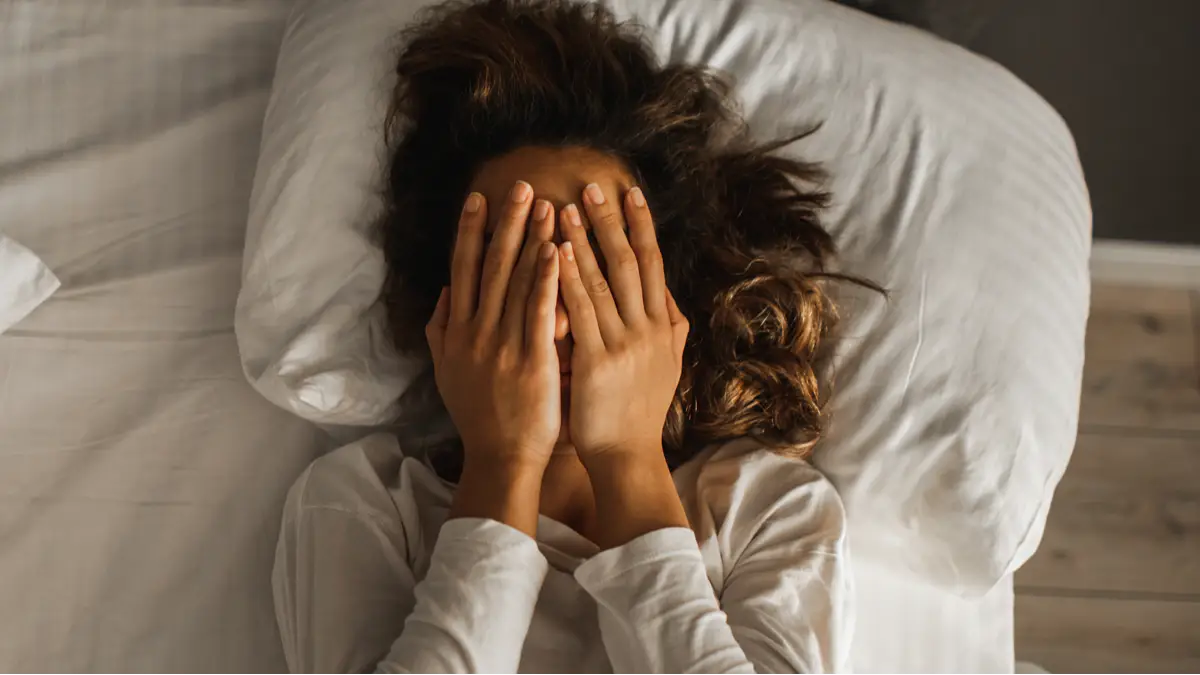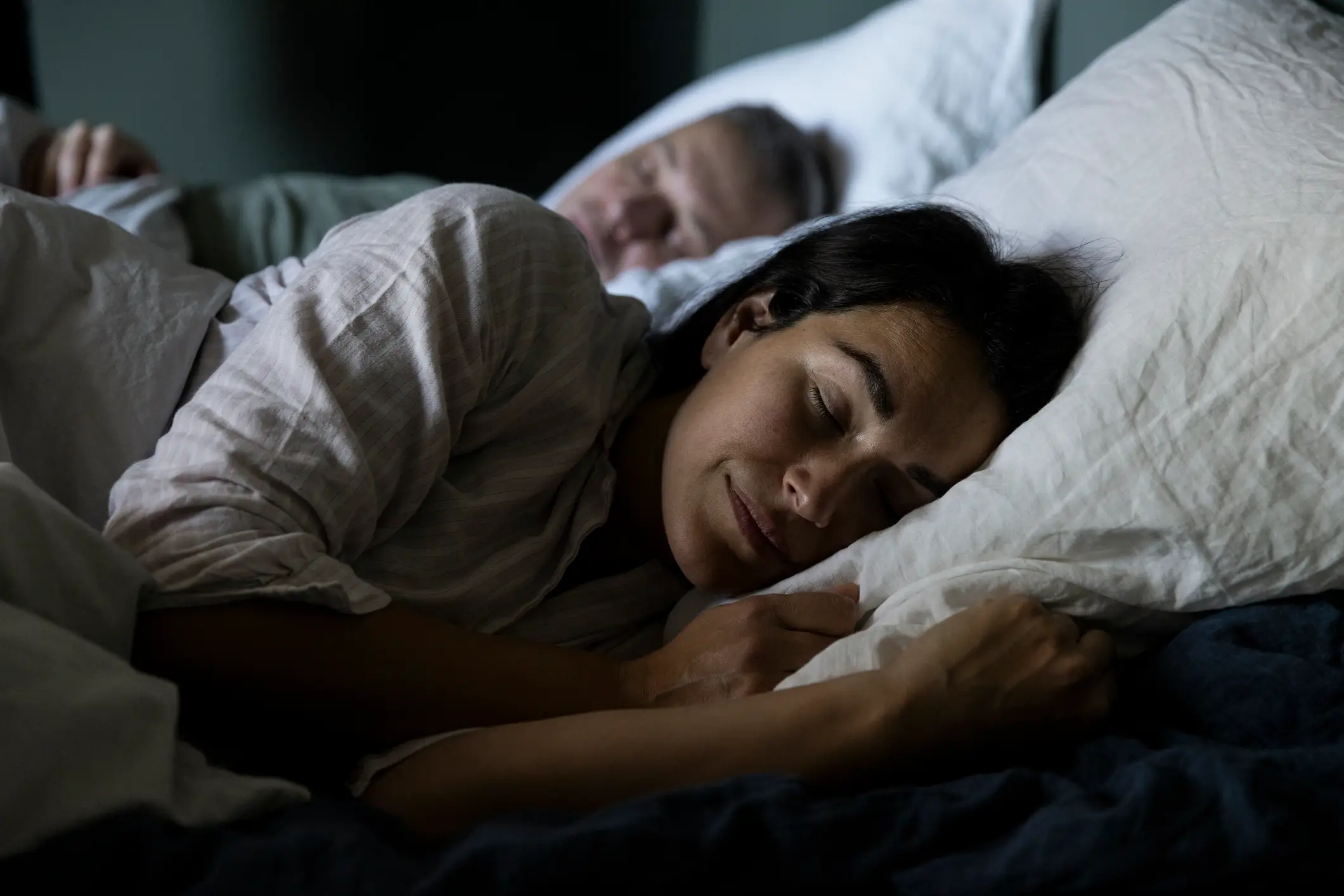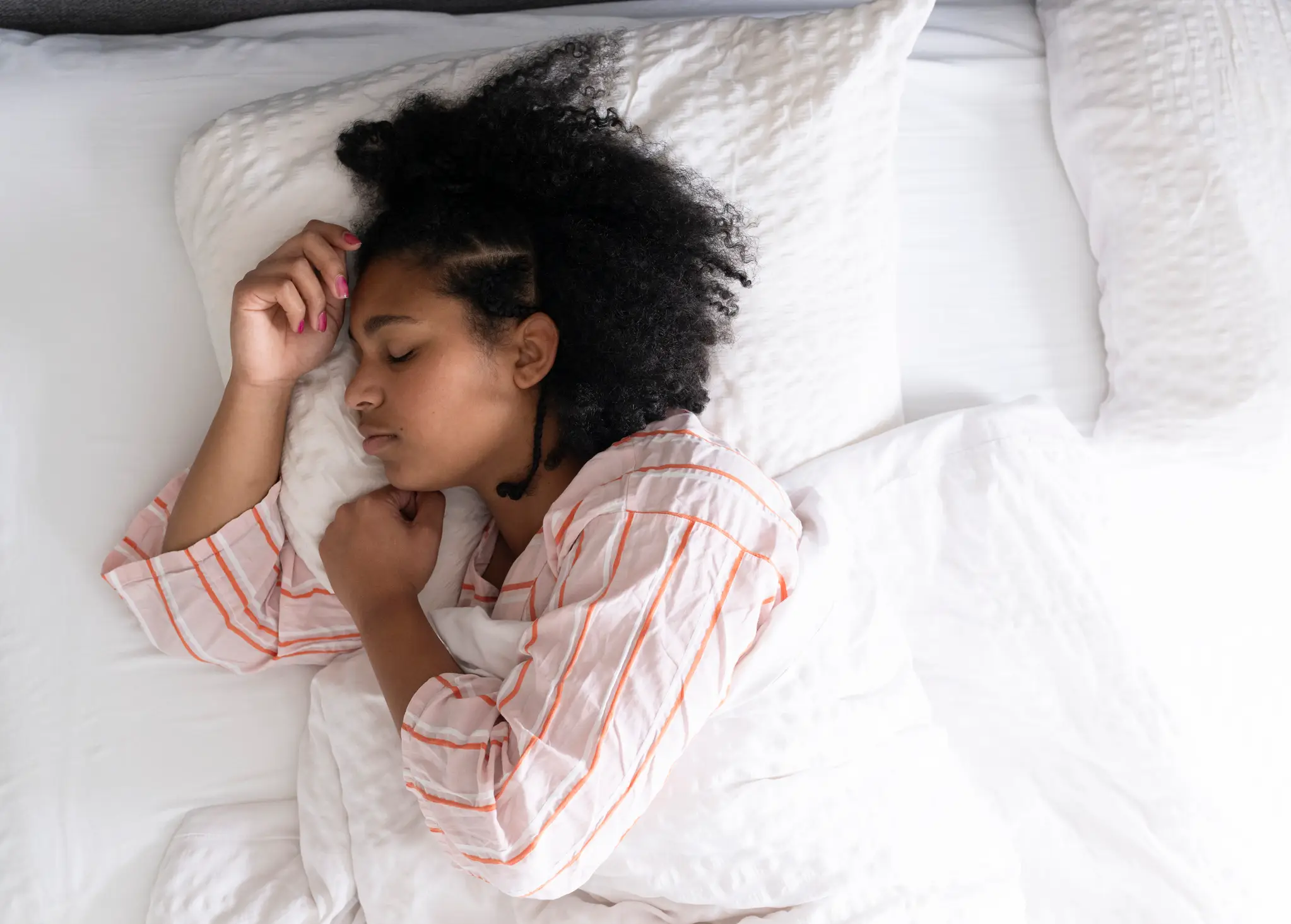
Poor sleepers who struggle to shut off and those with restless legs and whirring minds listen up: the so-called military sleep method could be your almost-effortless ticket to dreamland.
Adults aged between 18 and 64 should be getting between seven to nine hours of sleep per night. But if you or someone you know swears they only need four to five hours, then you could be putting yourself in jeopardy.
A lack of sleep has been scientifically linked to major ill-health and poor brain functionality, as well as increasing your risk for chronic conditions, such as heart disease and diabetes mellitus.
People catch a lot less z’s than they should for a myriad of reasons, whether that be insomnia, suffering from restless legs, or just poor sleep hygiene.
Advert
If we’ve just described you down to a T, perhaps the military sleep method could help out.

What is the military sleep method?
First introduced in the 1981 book Relax and Win: Championship Performance, the military sleep method was engineered to help veterans fall asleep in the most hostile of environments.
It combines deep breathing, mindfulness, and visualisation.
And according to practice, it shouldn’t take more than two minutes if you execute it properly.
“Understandably, when you’re having trouble falling asleep, you want to find the thing that’s going to help get you there quickly, which is probably why things like the military sleep method have become so popular," Dr. Alaina Tiani acknowledged, via the Cleveland Clinic. "I have patients asking about it more and more."
How to do the military sleep method correctly
There is no ‘right’ or ‘wrong’ way to use the military sleep hack, because what works for one person may not be the best fit for another. However, most experts recommend that you start your practice by relaxing your breath.
Begin by closing your eyes, inhaling deeply, and gradually releasing. Once your breath is focused, it’s time to move on to the visualization portion of the exercise.
Start by relaxing the nerves at the top of your scalp, and move down towards the forehead, eyebrows, eyes, nose, and mouth.
Move your focus down to your neck and your shoulders before visualising each muscle in your arms, hands, and fingers relaxing.
Next is your chest, followed by each thigh, leg, calf, and foot.
After calming your breath and visualising every muscle in your body slackening, it’s time to turn your focus to clearing your mind.
Good Housekeeping recommends you create serene environments in your mind, such as lying in a canoe on a serene lake with rolling blue skies for 10 seconds, or lying in a black velvet hammock, surrounded by darkness. Alternatively, you can simply repeat the words ‘Don’t think’ in your mind for 10 seconds.
According to professionals, this whole process should take around two minutes when you’ve got it down.

Why doesn’t the military sleep method work for me?
Healthline reported that if the military sleep method isn’t working for you, then it may be worth focusing on how you breathe and relax your muscles.
The experts also insisted that some conditions, such as attention deficit hyperactivity disorder (ADHD) or anxiety, may also interfere with this method’s effectiveness.
Dr. Tiani also noted that the pressure to sleep quickly may be impacting your ability to hit the hay.
“We’re seeing a phenomenon where sleep is becoming performance-based or gamified,” the health professional said. “You can track sleep on your fitness device, and you get a score. You want to get good sleep, of course. But all that information can build a lot of pressure to ‘win the sleep game.’
“We’ve seen people work so hard to sleep and try so many ‘sleep hacks’ that it backfires. Because the pressure is so intense,” she added. “You can even develop sleep anxiety where you dread going to sleep night after night.
Other ways to improve your sleep hygiene
Sleep expert Adeel ul-Haq has listed various ways that you can improve your chances of falling asleep, including eating a balanced diet and exercising for at least one hour per day.
“This can be anything from walking to going to the gym. It doesn't have to be complicated. As long as I get to move around, it helps me feel more tired when it comes to bedtime,” he told The Mirror. "However, I never exercise rigorously after 6pm as studies have shown this can have a negative effect on your sleep.
“For me, exercising early in the morning allows me to go about my daily routine and feel tired when I jump into bed and I can fall asleep in less than two minutes.”
The professional added that you should also try and stick to a regular routine, including going to sleep and waking up at the same time, and that perhaps ‘banning’ electronic devices from the bedroom is a good idea.
“Blue light can interfere with melatonin production which disrupts our sleep. I did try using blue light glasses in the past, but I have the best sleep when I don't use my phone before bed,” he claimed.
